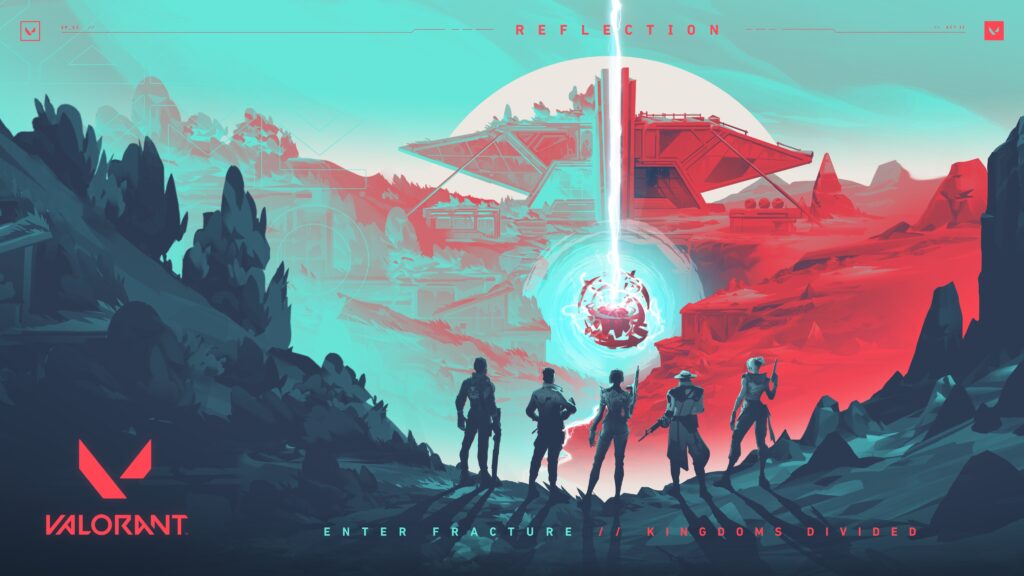
Genre: Valorant is a tactical first-person shooter (FPS) developed and published by Riot Games. The game blends precise gunplay with unique agent abilities, creating a competitive and strategic team-based experience.
Style of Play: Valorant focuses on objective-based gameplay, where two teams of five players face off. Players take on the role of agents, each with distinct abilities that complement the core FPS mechanics. The game rewards tactical thinking, precise shooting, and effective use of abilities.
Gameplay Overview:
Game Modes:
Valorant offers several modes to accommodate different playstyles and competitive levels:
Unrated: A standard 5v5 mode where players take turns attacking and defending bomb sites. The first team to win 13 rounds claims victory. This mode is perfect for casual play or practicing strategies without ranked pressure.
Ranked (Competitive): Similar to Unrated, but with a ranked ladder. Players earn or lose ranking points based on their performance, climbing from Iron to Radiant ranks. Teamwork and communication are essential for success in this high-stakes mode.
Spike Rush: A fast-paced, shortened version of the standard mode. Each team needs to win four rounds to secure victory, with random abilities and weapons available for each round, providing quick and intense matches.
Deathmatch: A free-for-all mode focused purely on aim training. Players respawn continuously and fight to reach a kill count, perfect for honing shooting skills without abilities.
Escalation: A team-based mode where players progress through a series of weapons and abilities as they earn kills. It emphasizes quick reactions and adaptability.
Agents and Abilities:
In Valorant, players select agents from a diverse pool, each offering unique abilities that complement traditional gunplay. Agents are categorized into four main roles:
Duelists: Agents that specialize in initiating fights and dealing high damage. Examples include Jett and Phoenix.
Controllers: Agents who manipulate the battlefield with smokes, barriers, and crowd control to control sightlines and space. Examples include Brimstone and Viper.
Initiators: Agents that set up plays by disorienting or gathering information on enemy positions. Examples include Sova and Skye.
Sentinels: Defensive agents who focus on protecting sites and supporting teammates with healing or utility. Examples include Sage and Killjoy.
Strategy and Tactics:
Each round begins with an economy phase, where players manage their in-game currency to purchase weapons, armor, and abilities. Teams must coordinate to either plant the Spike (on attack) or prevent it from being planted (on defense). Success depends on precise shooting, strategic use of abilities, and effective teamwork.
Realism and Presentation:
While Valorant embraces a tactical, competitive atmosphere, its presentation is more stylized than realistic. The game features vibrant maps, clean visuals, and fluid animations to ensure clear visibility and precise gameplay. The use of sound is also crucial, with footsteps and abilities providing vital information during matches.
Customization:
Players can personalize their experience by unlocking various cosmetic items, such as weapon skins, gun buddies, and sprays. Valorant regularly updates its content, offering new agents, maps, and skins through battle passes and seasonal events.
Gameplay Mechanics:
The game emphasizes a balance between gunplay and ability usage. Players must master precise aiming and shooting mechanics while effectively utilizing their agent’s abilities to gain an edge. Valorant‘s gunplay rewards accuracy and discipline, with minimal recoil patterns and high damage for headshots.
Valorant combines tactical FPS gameplay with unique character abilities, offering a highly competitive and engaging experience for players of all skill levels. Team coordination, precision, and strategy are the keys to mastering Valorant.